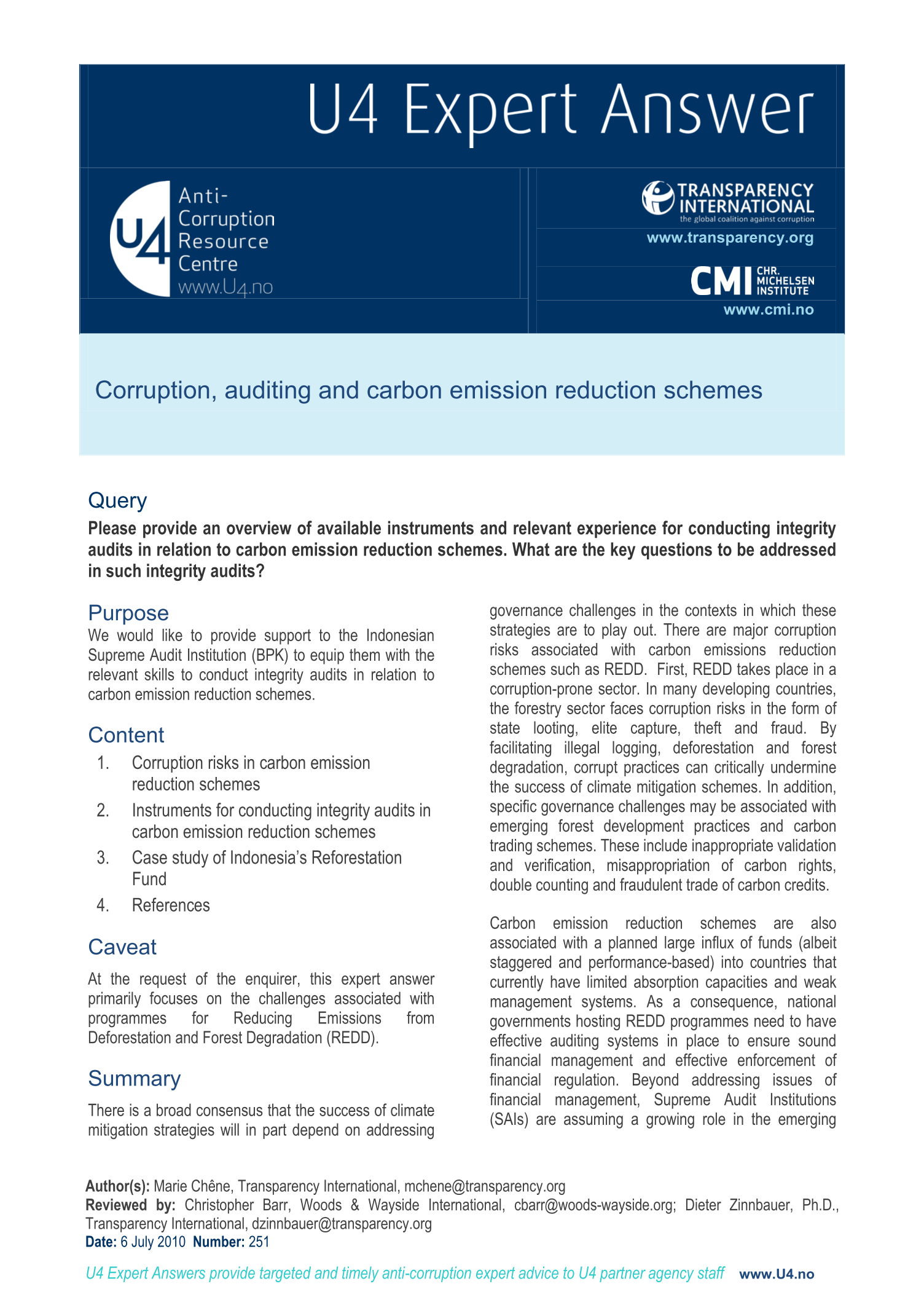U4 Helpdesk Answer
Corruption, auditing and carbon emission reduction schemes
There is a broad consensus that the success of climate mitigation strategies will in part depend on addressing governance challenges in the contexts in which these strategies are to play out. There are major corruption risks associated with carbon emissions reduction schemes such as REDD. First, REDD takes place in a corruption-prone sector. In many developing countries, the forestry sector faces corruption risks in the form of state looting, elite capture, theft and fraud. By facilitating illegal logging, deforestation and forest degradation, corrupt practices can critically undermine the success of climate mitigation schemes. In addition, specific governance challenges may be associated with emerging forest development practices and carbon trading schemes. These include inappropriate validation and verification, misappropriation of carbon rights, double counting and fraudulent trade of carbon credits.

Cite this publication
Chêne, M. 2010. Corruption, auditing and carbon emission reduction schemes . Bergen: U4 Anti-Corruption Resource Centre, Chr. Michelsen Institute (U4 Helpdesk Answer null)
Disclaimer
All views in this text are the author(s)’, and may differ from the U4 partner agencies’ policies.
This work is licenced under a Creative Commons Attribution-NonCommercial-NoDerivatives 4.0 International licence (CC BY-NC-ND 4.0)


